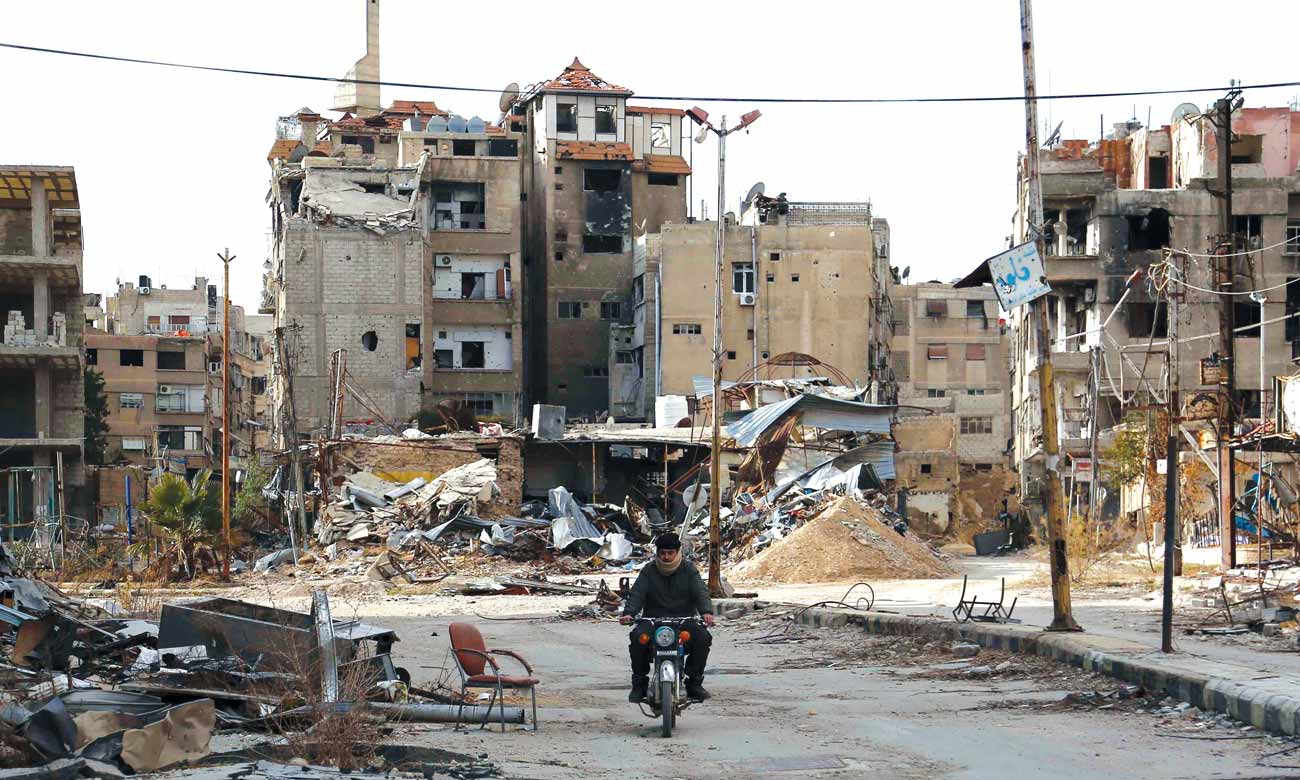



The Minister of Local Administration and Environment of the Syrian regime government Hussein Makhlouf has mentioned that the government has been taking measures to facilitate Syrian refugees’ return to the country.
In a statement to the pro-government local newspaper Al-Watan on 15 November, Makhlouf said that the government had drawn up a plan for the return of refugees, starting with amnesty decrees issued by the head of the Syrian regime, Bashar al-Assad, simplifying the return procedures, and granting those wanted for military service a year’s delay before joining it.
Makhlouf added that the procedures also include the provision of housing units to accommodate refugees whose dwellings had been temporarily damaged and the issuance of identity documents for those who lost them due to war.
The government put the executive plan before holding the “Refugees” conference on 11 and 12 November, Makhlouf indicated.
He pointed out that the conference aims to tell people abroad that their country is waiting for their return and that it needs their help to rebuild Syria.”
Makhlouf’s statements were on the sidelines of a meeting of the Syrian People’s Council’s “Budget and Accounts Committee,” which discussed on 15 November the budget of the local administration’s ministry.
The committee’s members stressed during the meeting the need to increase the ministry’s allocations “for it is a service-based ministry and in direct contact with citizens. They also pointed out the need to automate the cadastre records and provide internal transportation in the countryside.
On 11 and 12 November, the Syrian capital, Damascus, hosted a Russian-sponsored conference on Syrian refugees’ return. The conference was attended by countries that have no influence on the Syrian file and have nothing to do with the refugee issue, including Nigeria, Cuba, Kyrgyzstan, Argentina, Sri Lanka, Abkhazia, Colombia, and Algeria.
In his speech at the conference, al-Assad said that “the great majority” of Syrians want to return to their country.
However, the Syrian human rights activist and researcher at Human Rights Watch’s Middle East and North Africa Division, Sarah al-Kayyali, said to Enab Baladi that “the main reasons that forced Syrians to leave in the first place still exist, such as arbitrary arrests, torture in prisons and the tragic human and economic situation, especially in the Syrian regime-held regions.”
Al-Kayyali referred to violations of property rights, land rights, and the right to own a house, which the Syrian government violated even after the manifestations of war decreased in many Syrian regions.
The European Union (EU) also declared its refusal to attend the conference, considering it premature, in addition to Canada, because the terms of repatriation are not available in Syria.
As for the United States of America (US), it criticized the conference in a statement by its State Department’s Deputy Spokesperson, Cale Brown, in which he considered that the conference was not a credible attempt to establish the necessary conditions for the voluntary and safe return of refugees to Syria.
Brown described the conference as “a play show,” which is reflected in the participating countries representing the Syrian regime’s narrow group of allies while the key actors were absent from the conference.
The governor of Rif Dimashq province, Alaa Ibrahim, has said against the backdrop of the “International Conference on the Return of Refugees,” that Syrian refugees could be welcomed back in housing centers if sanctions on Syria were lifted.
Ibrahim commented on the conference, saying that he hopes it would collect financial support to contribute to restoring the infrastructures of “the regions destroyed by terrorism”, according to his statement to Syrian Days online news website on 11 November.
Ibrahim pointed out that the returning refugees will not go back to their areas directly, as the governorate has several housing centers, such as the temporary housing units in al-Harjalah and Adra used previously as camps for those who left the “settlement” areas in Damascus and its countryside.
The governor said that these housing centers would receive a number of returning families until the governorate completely finishes the infrastructure rehabilitation in their regions.
if you think the article contain wrong information or you have additional details Send Correction